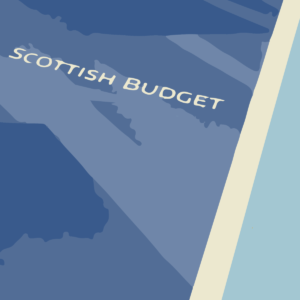Starmer claims that tax increases are necessary to prevent austerity.

Prior to the presentation on Wednesday, Sir Keir Starmer stated that although the budget will embrace the “harsh light of fiscal reality,” “better days are ahead.”
Speaking in Birmingham, the prime minister declared that his administration would have to make “tough decisions” and decided to increase taxes in order “to prevent austerity and rebuild public services.”Labour ruled out raising income tax, VAT, or national insurance in its general election manifesto, promising not to raise taxes on working people.
However, the promise has now come under increased criticism because it is anticipated that the party’s first budget in 15 years would include measures that could result in tax increases.
This includes a predicted prolongation of the income tax threshold frozen past 2028 and an expected increase in the National Insurance (NICs) rate paid by businesses, which some argue violates Labour’s election vow.
Pressure has mounted on ministers to clarify who would be protected by the pledge not to increase working-class taxes. Sir Keir frequently emphasized the necessity for “tough decisions” and mentioned “broader shoulders” bearing a “higher burden on tax,” although he did not specify what tax increases would be included in the budget.
Sir Keir, who anticipated criticism after Wednesday’s Budget, advised anyone who questioned the government’s strategy to specify which taxes they would increase or which public services they would reduce.
The Budget: Scotland’s Five Questions Addressed

For the first time, a female Chancellor of the Exchequer carried the renowned red Budget briefcase high in Downing Street, sparking a great deal of conjecture about its contents. The story of Rachel Reeves begins with her being £22 billion out of pocket this fiscal year. For comparison, that is equivalent to Scotland’s total devolved public sector payroll for 2021–2022, which included 547,000 employees in local government, education, health, and law enforcement as of June of last year.
The budget primarily addresses the upcoming fiscal year, which begins in April 2025. According to Labour, this calls for a £40 billion rise in taxes and investment on public services.
How will Rachel Reeves address the gaps in the budget?
Labour made the following strict pledges during its election campaign: no adjustments to VAT, income tax, or national insurance (at least for employees). Therefore, even though tax hikes appear to be imminent, all but one will originate from less substantial income sources.
Employers still give the Treasury 13.8% of payroll, despite two giveaways by Tory chancellors that reduced employee rates from 12% to 8%.
This is anticipated to increase, so compensating the Treasury for the employee tax giveaway. With 22.1% of workers, Scotland has a much larger proportion of public sector employees than it receives from the Treasury in terms of such compensation, compared to 17.3% of workers nationwide.
Which tax adjustments will and won’t be relevant in Scotland?
Because there is less wealth in Scotland, some other taxes that have been the focus of speculation generate less money per person. Holyrood does not have devolved authority over capital gains tax, inheritance tax, or pension tax relief, which would be applicable in Scotland.
One of the main problems with this budget for the Scottish economy is that: According to the industry, a strict halt to investment permits would also discourage investment, hastening the sector’s long-term downturn, resulting in job losses and a greater need on imported energy.
In Scotland, which cuts would be applicable?
In Scotland, bus companies get subsidies to offer free transportation to people under the age of 21 and to those over 60.
The financing mechanism for the Treasury’s block payment to Holyrood will be impacted by the reduction in subsidies to bus operators. Benefits for people who are unable to work because of a chronic disease may change. The Conservatives worry that these benefit claims have been increasing at an unsustainable rate has been passed on to Labour.
While the Scottish government has devolved authority over disability benefits, such changes to Universal Credit and statutory ill-pay would be applicable throughout the United Kingdom. At a price, that might be used to lessen the effects of the Westminster revisions.
Is there anything positive to report from this budget?
Surveys of business confidence and opinion polls are putting pressure on Labour ministers to present a more optimistic picture of the economy. Some people expect chancellors to “produce a rabbit from a hat,” as if they were magicians. The important thing is that this is meant to be a pleasant surprise.
Eliminating the two-child cap on family benefits is one such option. For Labour MPs, keeping it would be extremely uncomfortable, even though it would be costly. However, some people’s increased salaries translate into higher expenses for employers, who already have to pay higher National Insurance Contributions. Several governmental branches are included in that.
What comes next?
The amount that the Scottish Government can anticipate receiving in the block grant for 2025–2026 is given to it in the Budget. Holyrood’s finance secretary, Shona Robison, has until December 4 to distribute that and take into account additional revenue streams, such as Scottish income tax, in her budget statement. As Tory leader Rishi Sunak delivers his (probably) final statement from the Commons front bench in response to the 12.30 Budget speech, the Office for Budget Responsibility releases its analysis of the economic impact.
